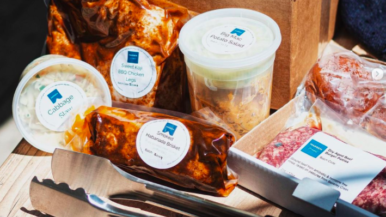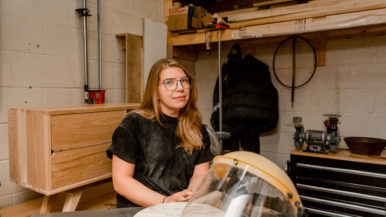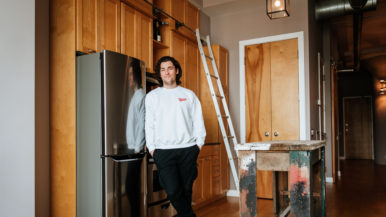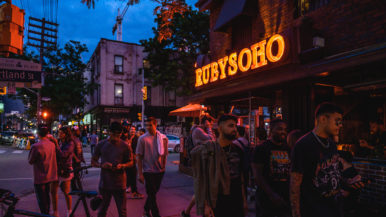“Inmates are terrified right now”: A parole lawyer describes what it’s like in jails and prisons during the coronavirus crisis

I’ve been working as a parole lawyer for years. What’s interesting about handling parole cases is that nobody is arguing about what happened—the question instead becomes, what happens next? I like being part of the system that gets people back to their lives and contributing to society again. Last weekend, we received the news that the courts are mostly shutting down to try to stop the virus from spreading. Jury trials have been postponed indefinitely. Bail hearings and bail variations are happening. Pre-trial hearings are taking place, and trials before a judge for people who are already in custody are happening. Aside from that, anything that doesn’t qualify as urgent or an emergency is stalled right now. And people in custody are terrified.
I’ve never seen anything like this; none of us have. Sid Freeman, a criminal defence lawyer, and John Struthers, the president of the Criminal Lawyers’ Association, mobilized lawyers to volunteer in courts across the province. On Tuesday, I volunteered at the courthouse in Scarborough, and the hallways were dead empty and utterly quiet. They’re keeping out every non-essential body. Still, even to keep urgent business going, several hundred people come through the court’s doors, for bail hearings or whatever is needed to move matters along for people in prison. Where there are people, they’re standing much further away from each other than they normally would. We’re all just trying to clear the decks however we can, whether it’s helping people get bail as soon as possible or moving them to trial as quickly as possible. Unless we stop arresting people, my job will be one of the last we can do without.
On Tuesday, my wife and I had a conversation about why it’s essential I keep going to court. She is Chinese, and she has a lot of family in China. The information she’s getting out of China is so out of line with what we’re doing here. Nobody there would go out without wearing full protective gear, and if they did, they’d be publicly shamed. And I’m here in Scarborough courts with hundreds of people, and only some of us are wearing gloves. Our ideas of what constitutes appropriate behaviour right now are wildly different. It’s something we’re trying to navigate.
Jails have gone into lockdown. They’re closed to all public visits. Right now, lawyers can still get in, though they’re putting us behind glass to speak to our clients. Clients are utterly terrified. Jail is a hyper-charged environment to begin with: imagine a violent high school, where fights break out over things like who’s allowed to change the channel on the TV. And then add coronavirus to the mix. Inmates aren’t able to control what information they receive, or what measures they can take to protect themselves, or who they’re exposed to every single day. Social distancing? I sincerely doubt it.
Roughly half of the provincial prison population—maybe around 6,000 people—are people in remand, who haven’t been sentenced for anything. They’re people who have been charged but can’t get bail. Remand is what we’re most worried about. It’s fast rotating, and people get moved around a lot—a dangerous practice when coronavirus is a factor. Those jails have always been a problem, and now they’re just disasters waiting to happen.
Because parole hearings happen in jail, parole hearings are not happening. I have clients whose parole eligibility dates are coming in the next week or two, and we don’t know how they’re going to get a hearing. My clients can still reach me, and most of them still have access to the phone. But they can’t see visitors, and some of them can’t talk to their families. Are we going to change the law to have this happen in a different way? Will hearings happen by phone or virtually, by video conference?
The fastest way to get something done is not always in line with people’s rights. At a parole hearing, the board sits down and talks to the applicant. We’re talking about chucking that out the window and relying instead on what’s in someone’s file, which is often just a police report from someone’s initial arrest and can be prejudicial or inaccurate. All of these are live concerns. On one hand, it could keep someone in jail who shouldn’t be in jail. On the other hand, it could protect victims of a crime. Everybody in the system knows that we’re one bad story away from all hell breaking loose. But parole is essential: you have to give people a chance again. I want the system to continue as best it can. Even though we know it’s inherently imperfect, we can’t stop trying.
I’ve seen some advocates and citizens suggest we throw open the jails and let all the non-violent offenders out. But I think we’re several steps of disaster away from that scenario, and short of some kind of unprecedented act of Parliament, there’s no legal mechanism to do that. Right now, some inmates believe they’re going to be locked in indefinitely, and some people believe they’re going to throw open the doors. Inmates don’t know what to believe or who to listen to. In jail, rumours are some of the quickest things to spread.
We know the police aren’t going to stop arresting people. But I do believe the kinds of arrests are going to change. Is there going to be less drunk driving? Probably. Is there going to be more domestic violence? Probably. Part of being a lawyer is responding to unexpected and unusual things. I’m proud to be working right now.





